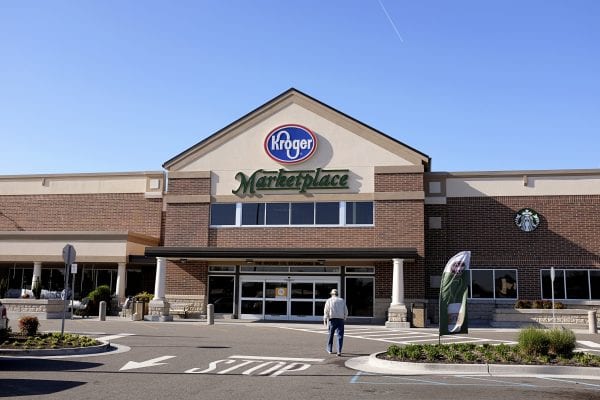Food Safety

 An important step in starting a food processing business is obtaining the proper permits. Anyone wanting to operate a food processing establishment in Alabama must submit a written application for a permit on forms provided by the Alabama Department of Public Health (ADPH). The application includes the name and address of the person starting the business, the location and type of the proposed food processing establishment, and the signature of the applicant. This permit must be renewed annually.
An important step in starting a food processing business is obtaining the proper permits. Anyone wanting to operate a food processing establishment in Alabama must submit a written application for a permit on forms provided by the Alabama Department of Public Health (ADPH). The application includes the name and address of the person starting the business, the location and type of the proposed food processing establishment, and the signature of the applicant. This permit must be renewed annually.
Before approving the application, the ADPH will inspect the proposed food processing establishment. The permit will be issued if the establishment is in compliance with ADPH food processing rules.
County health departments issue several types of permits for food businesses in Alabama. When you apply for a permit, you will be asked to specify the permit type. Choices are as follows:
- Food Service Establishment/Catering. Any place, vehicle, or vessel where food for individual portion service is prepared, stored, held, transported, served, or dispensed. This includes any such place regardless of whether consumption is on or off the premises. The term also includes delicatessen-type operations that prepare food intended for individual portion service and also includes all schools and day care centers. The term does not include private gatherings with a limited and identifiable membership where no sale of food takes place. A sale of food shall be any situation in which there is a charge for profit for the food or a membership fee is required for entry or participation.
- Limited Food Service Establishment. Establishments that dispense or sell only the following food items in single service articles: hard cheese, such as cheddar; dip ice cream; any fully cooked luncheon meat including wieners; any fully cooked smoked meat; and any nonpotentially hazardous beverage or food or any combination of these, provided that meat items are received in fully cooked form from an approved processing facility. The term does not include a food establishment where a food is cooled and subsequently reheated or where any food preparation operation involves cooking a raw food.
- Temporary Food Service Establishment. A food service establishment that operates at a fixed location for a period of time of not more than 14 consecutive days in conjunction with a single event or celebration.
- Food Processing Permit. All food processing businesses are regulated by the Food and Drug Administration. These businesses are inspected by the ADPH and are issued a copy of the ADPH Food Processing Establishment Inspection Report. The county health department must inspect your premises and give you a copy of the approved inspection report and permit before you are authorized to manufacture or process food for an establishment or a retail food store. All facilities that are engaged in manufacturing, processing, packing, or holding food for consumption in the United States must register with the FDA; this registration form is available on the FDA’s website.

- Mobile Food Establishment. A vehicle-mounted food service establishment designed to be readily movable. Food trucks are required to have a stationary commissary.
- School Lunchroom.
- Retail Food Store. Any establishment or section of an establishment where food and food products are offered to the consumer and which are intended for off-premise consumption. The term includes delicatessens that offer prepared food in bulk quantities only. The term does not include establishments that handle only prepackaged, nonpotentially hazardous food; roadside markets that offer only fresh fruits and fresh vegetables for sale; food service establishments; or food and beverage vending machines.
- Limited Retail Food Store. Establishments that sell or market only prepackaged food items. The term does not include establishments that handle only prepackaged, nonpotentially hazardous foods, roadside markets that offer only fresh fruits and vegetables for sale, food service establishments, or food and beverage vending machines.
Meat or poultry processing facilities must be approved by the Alabama Department of Agriculture and Industries or the United States Department of Agriculture (USDA). If your product contains more than 2 percent meat, you are considered a meat processor.
Commercial facilities that process heat-processed, low-acid canned foods and acidified foods are required to be registered with the Food and Drug Administration, which regulates low-acid (pH 4.6 and above) and acidified canned foods. This registration can be completed online at https://www.fda.gov/food/guidance-regulation-food-and-dietary-supplements/registration-food-facilities-and-other-submissions. Producers of acidified foods must also file a process schedule for each product. This can also be done online at the FDA’s website.
The full text of the low-acid canned food and acidified food regulations is in the Code of Federal Regulations, Title 21, Parts 108, 113, and 114. The Code of Federal Regulations can be viewed online at http://www.accessdata.fda.gov/scripts/cdrh/cfdocs/cfcfr/cfrsearch.cfm.
Patti West, Regional Extension Agent, Food Safety and Quality; Christy Mendoza, Regional Extension Agent, Food Safety and Quality; and Jean Weese, professor, Poultry Science, Auburn University
Reviewed February 2022, Getting a Food Processing Permit in Alabama, FCS-2201

